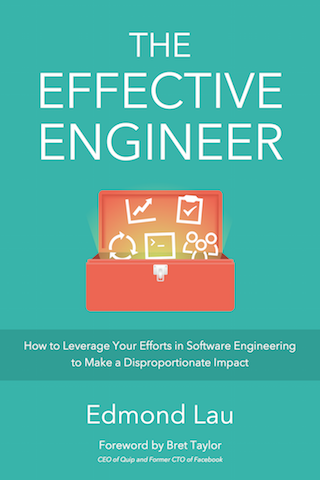The Simple Secret to Effective One-on-Ones

“What do you want to get out of our time working together?”
Whenever I start a new one-on-one work relationship — whether it’s with a new person on my team, a new mentee, a new manager, a new project partner, or a new coaching client — I’ll inevitably begin the conversation with some version of that question.
Something new always surfaces. I might have intuitions and assumptions about what’s important to the other person, but they’re never completely accurate.
Sometimes they’re even way off. I remember once being assigned to a new manager very early in my career and suddenly having someone else start to lead the meetings and drive the projects that I had previously been doing. At the time, I felt boxed in, a little resentful, and also resigned to this new way of the world.
It took me months to finally bring up what I wanted — more space to lead — in a one-on-one conversation. To my surprise, there was no resistance at all. He had stepped in because he had assumed that he needed to fill a void. And I had assumed incorrectly that he wanted to exert more control.
Our implicit assumptions led to missed opportunities.
That’s why the most important thing to do in any collaborative relationship is to explicitly design the relationship. At work, this is particularly important when it comes to your relationships with your manager and with anyone who reports to you — those relationships tend to be some of the longest-running ones you’ll have.
Notice Your Default Patterns
Often, I’ll notice engineers making assumptions about what their managers should and shouldn’t be doing. And they’ll operate based on those assumptions rather than having an explicit conversation around what they want out of the relationship.
Without an explicit design, however, it’s easy to fall into default, suboptimal patterns.
Maybe your default is just to walk into a one-on-one conversation with your manager and give status updates — updates that could have just as easily been communicated asynchronously via email, Quip, Asana, or some other project management tool. What might be a more useful conversation to have?
Maybe your default is to bring in whatever technical problems you’re facing that week and ask your manager for advice. These problems might be important, and they also might just meet your short-term needs — what do you want out of the relationship long-term?
Maybe your default is to ask for more insight into how the rest of the team and the company is doing. Your curiosity is satisfied, but are you getting what you want during your time at the company?
There’s nothing wrong with these patterns — so long as they’re what you and your manager consciously choose and want to spend your time doing.
The problem comes when we don’t ask for what we actually want and when we assume that this default is what the other person wants. Human beings may have empathy, but they aren’t mind readers. If you don’t ask for what you want, people won’t know.
How much success would we have building software if we never had an explicit conversation about what’s important? And if we wouldn’t build software that way, why would we approach building our relationships any differently?
The common trap here is believing that it’s the responsibility of the person in the more authoritative position to guide or coach you through all this. And yes, it’s wonderful when our managers and our leaders are also great coaches.
But you are ultimately responsible for your own growth. You’re responsible for the spheres of your work and your life that you can influence. And you have the power to shape your conversations and design your relationships.

Powerful questions for designing powerful alliances.
Equip yourself with a list of starter questions to help you explicitly design your most important, one-on-one work relationships.
Design Your Alliances
One of the highest-leverage, interpersonal skills that I’ve learned as a leadership coach is therefore to design the alliance supporting your relationships. In an alliance, two or more independent parties come together to make a mutually beneficial agreement with explicit terms.
In the context of coaching, I’ll ask the engineering leaders I work with questions like: What would a successful coaching relationship look like for each of us? What do I expect from them if I were to take them on as a client? What do they expect from me?
What would it mean to similarly treat your work relationships — with your manager, with your reports, or with your teammates — as alliances?
It would mean being explicit at the outset about you want and asking the other side to be explicit about what they want.
It would mean discussing with your manager: What do you most want to get of your job, and how can your manager best support you in that goal? What do you see as your next level or area of growth? How would you like your manager to give you feedback and challenge you? What does your manager expect from you?
It would mean discussing with your teammates: What do you expect from each other? What do you each see as possible for the team? What’s important about how you want to work together and communicate?
Now, you might be thinking, “I’ve done the same one-on-ones for so long. It’s too late to change them.” Or you might be asking yourself, “When’s the right time to have this conversation?”
The good news is that it’s never too early or too late to design your relationships. The right time is at your next one-on-one. And, in fact, you should be periodically redesigning your alliances. The strongest relationships are continually evolving because what we want and need as well as our environments are always changing.
Here’s a challenge for you. Pick a relationship where you haven’t explicitly designed your alliance. In your next one-on-one, just say, “I’d like to have an explicit conversation around what we each want to get out of this relationship.” Clarify your expectations and what you want, and then ask for their expectations and what they want.
Share what you learn from your experience in the comments, or just send me a note. I’d love to hear about it.

Powerful questions for designing powerful alliances.
Equip yourself with a list of starter questions to help you explicitly design your most important, one-on-one work relationships.

“A comprehensive tour of our industry's collective wisdom written with clarity.”
— Jack Heart, Engineering Manager at Asana
“Edmond managed to distill his decade of engineering experience into crystal-clear best practices.”
— Daniel Peng, Senior Staff Engineer at Google

“A comprehensive tour of our industry's collective wisdom written with clarity.”
— Jack Heart, Engineering Manager at Asana
“Edmond managed to distill his decade of engineering experience into crystal-clear best practices.”
— Daniel Peng, Senior Staff Engineer at Google


















Leave a Comment